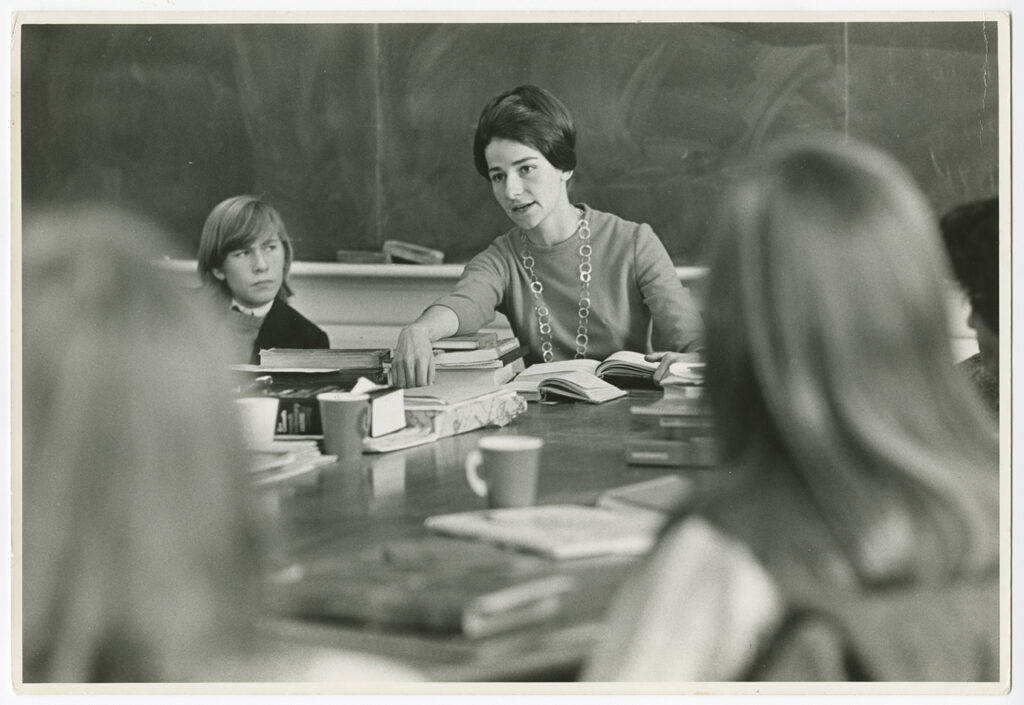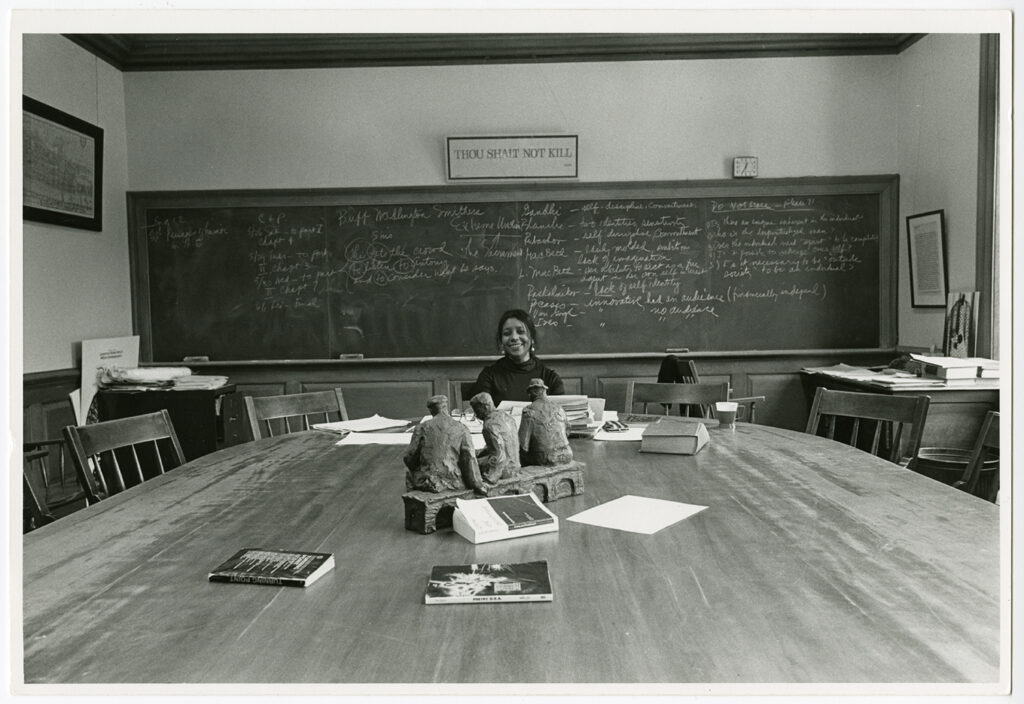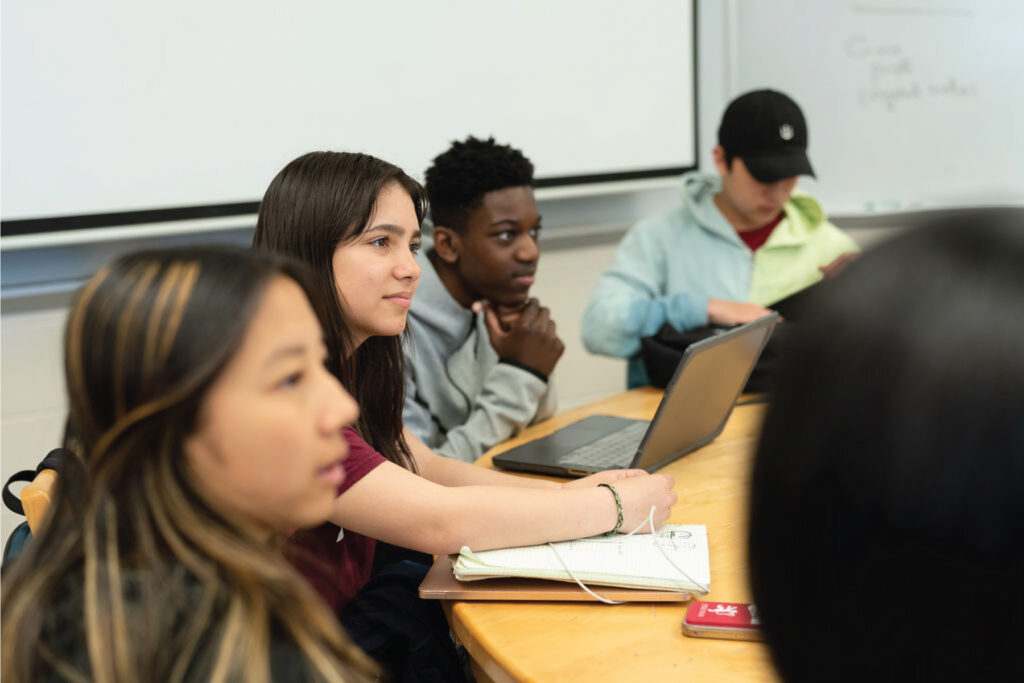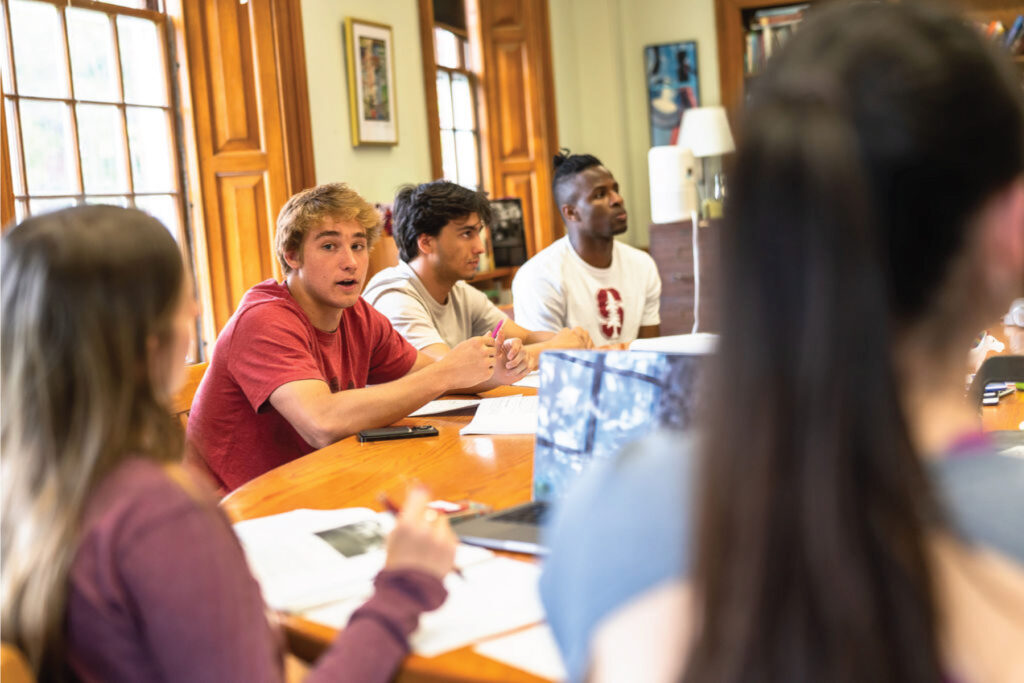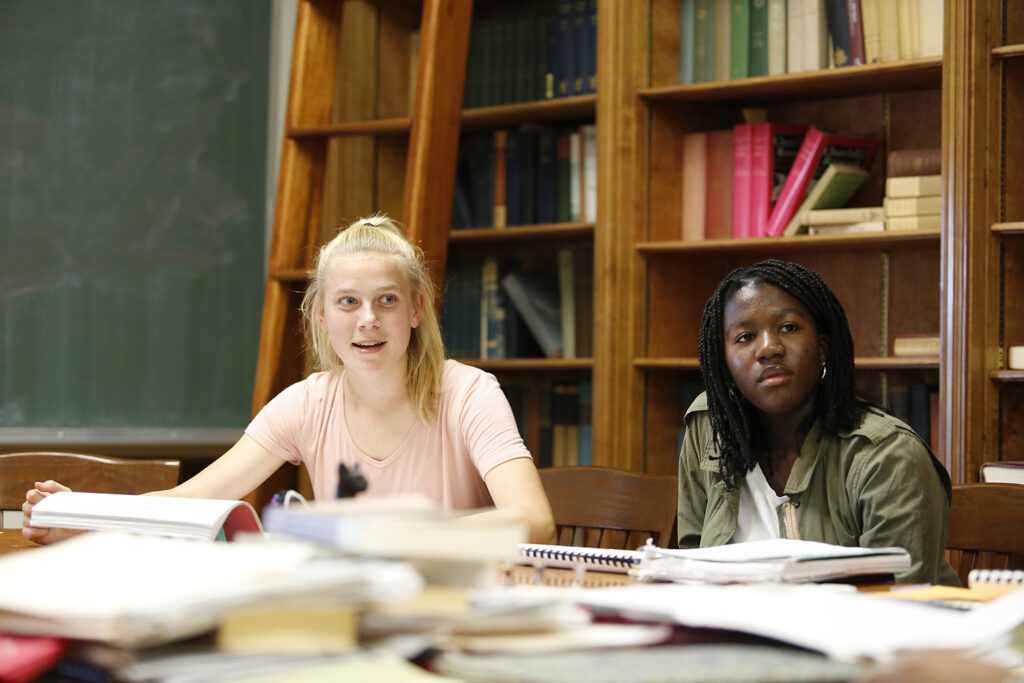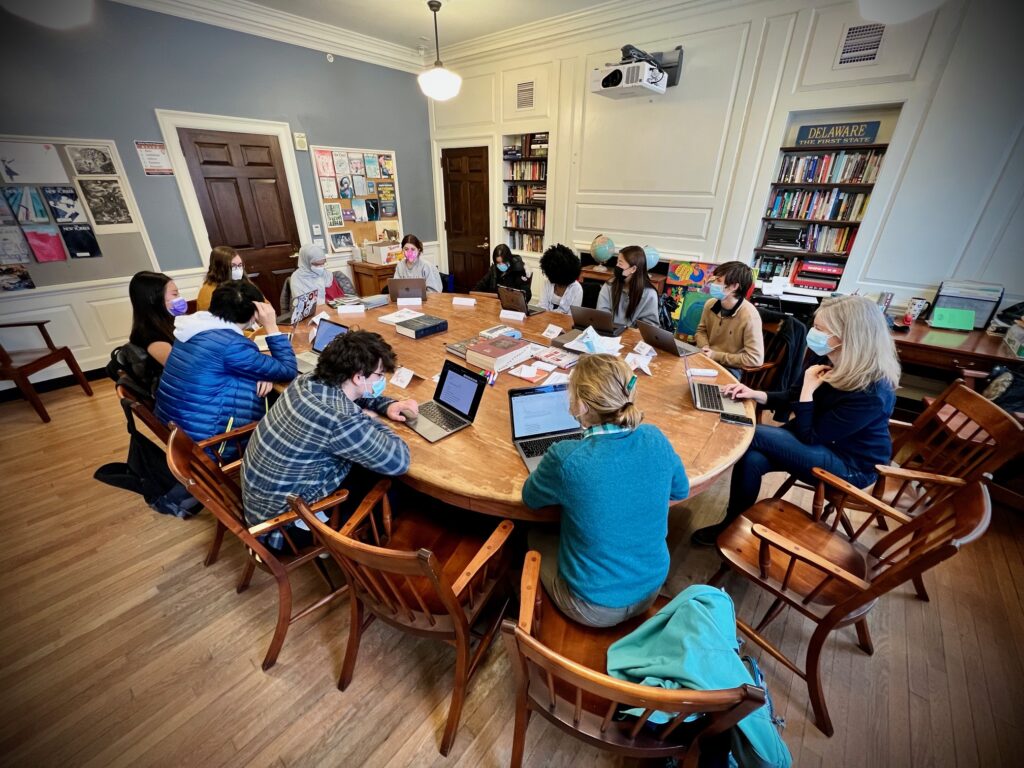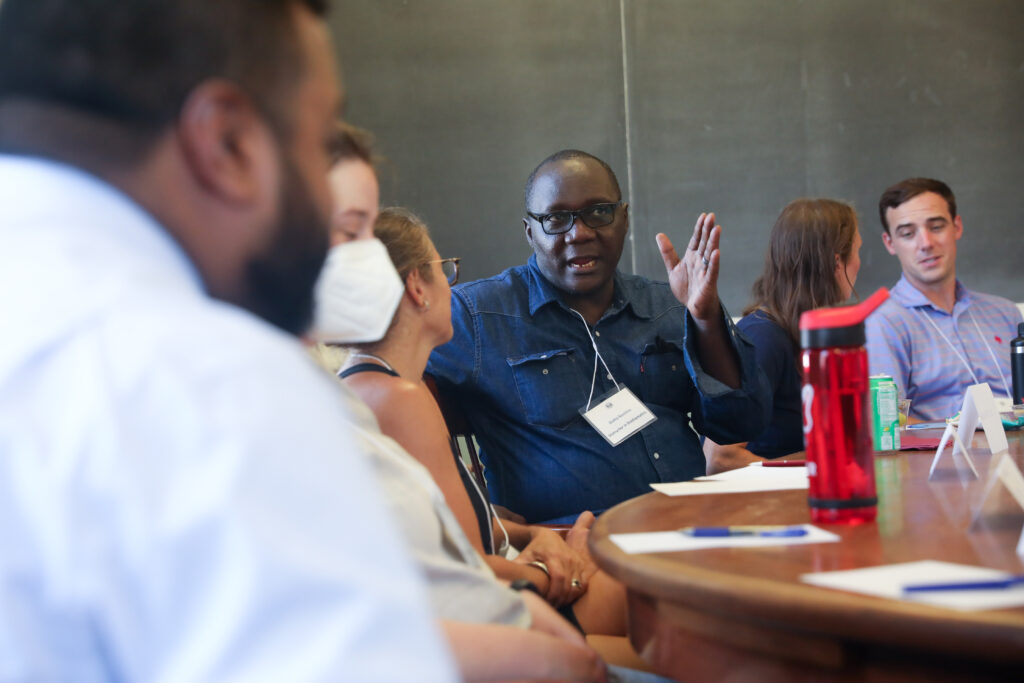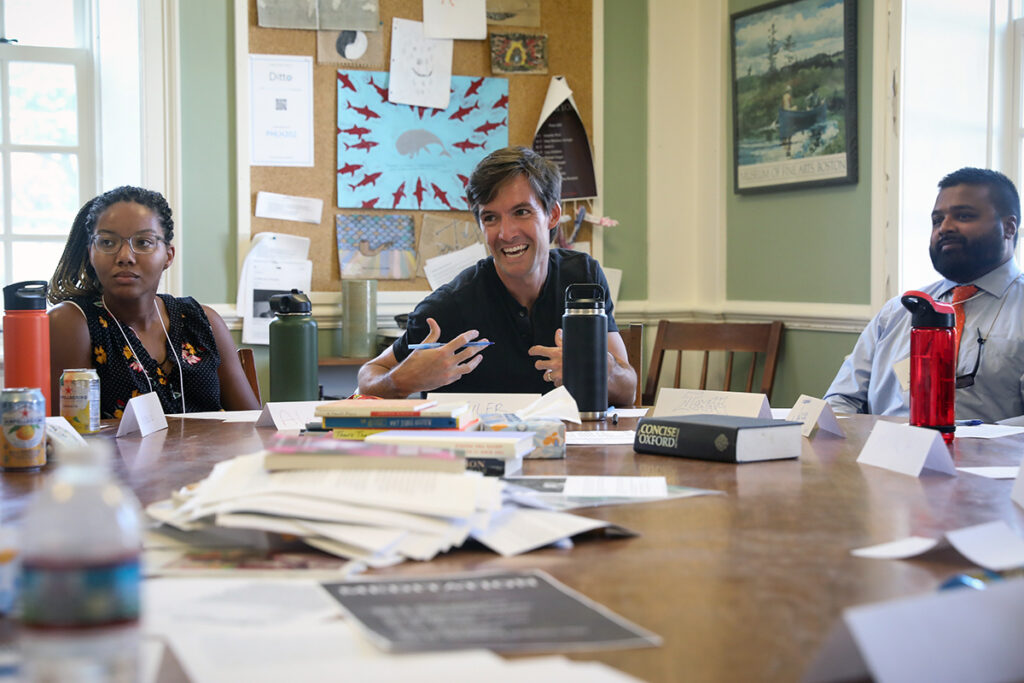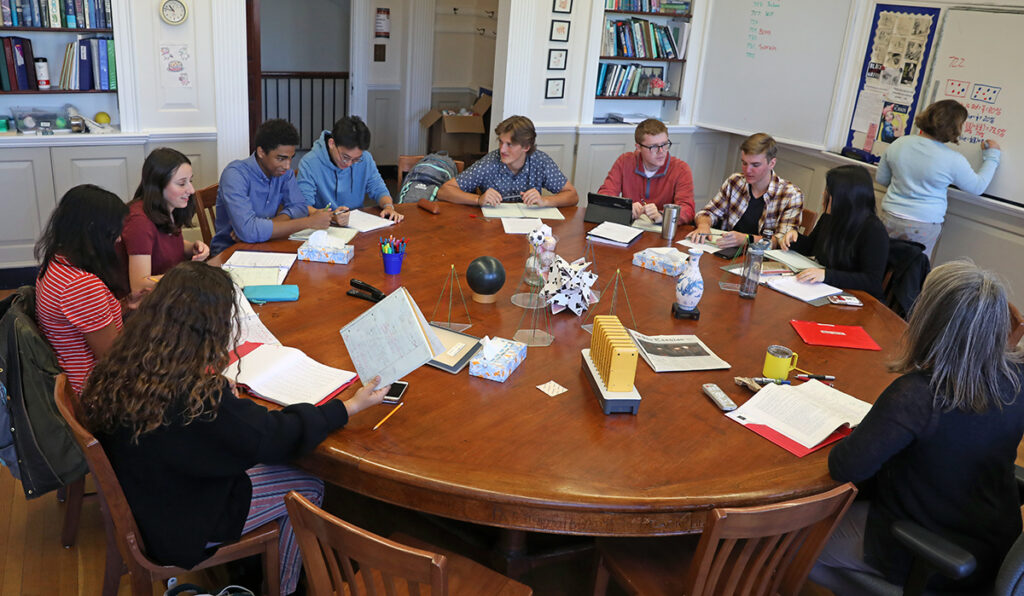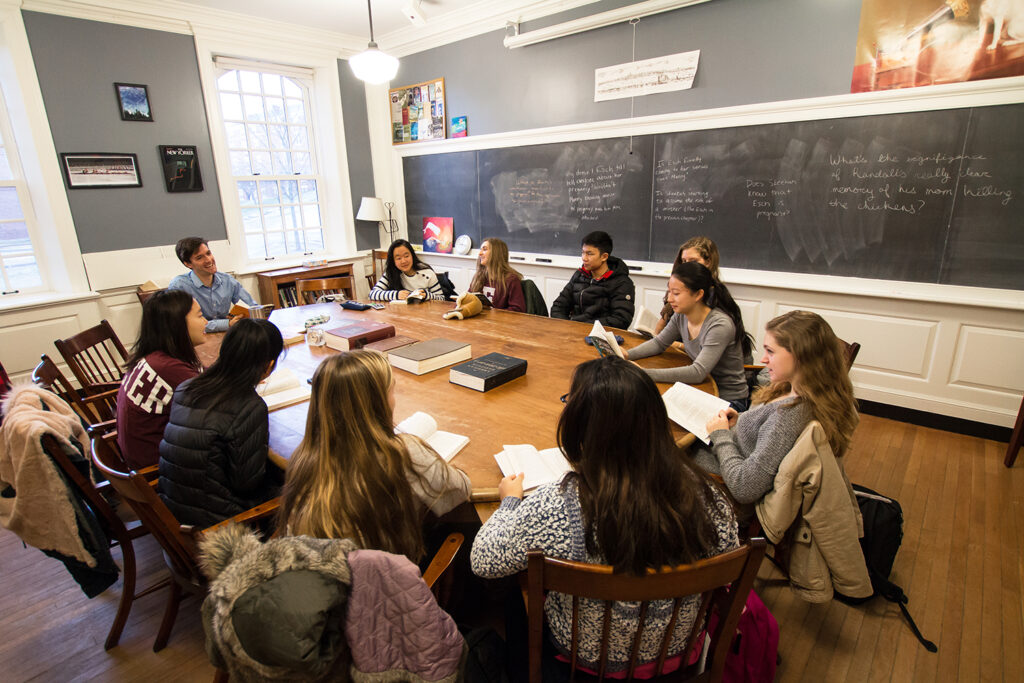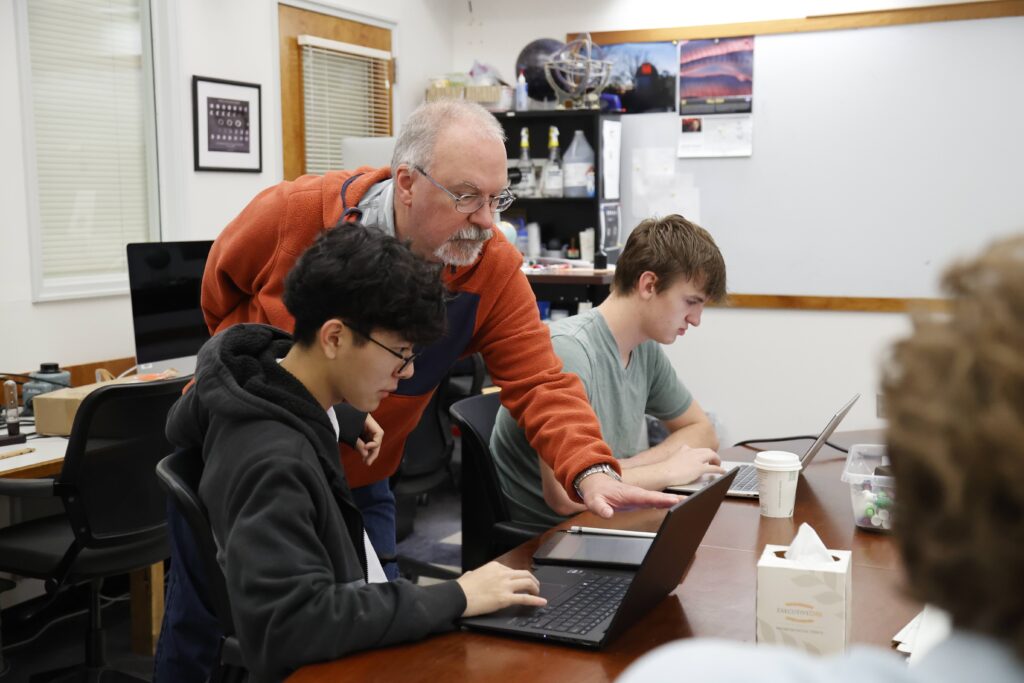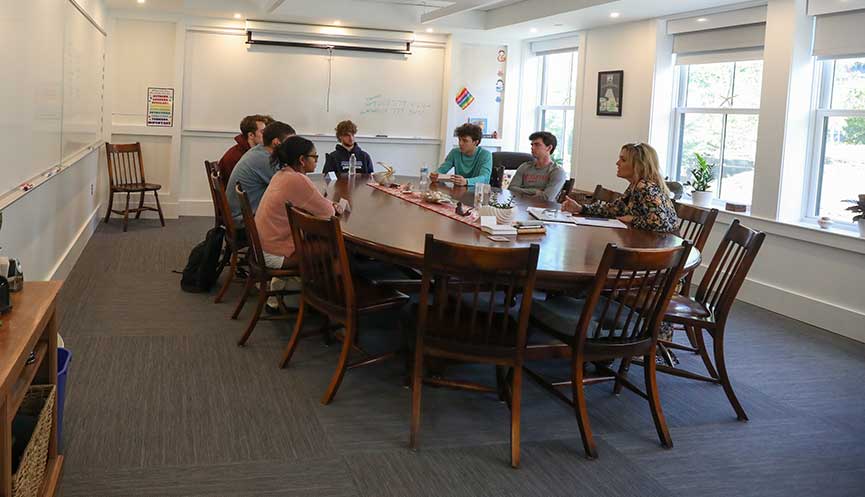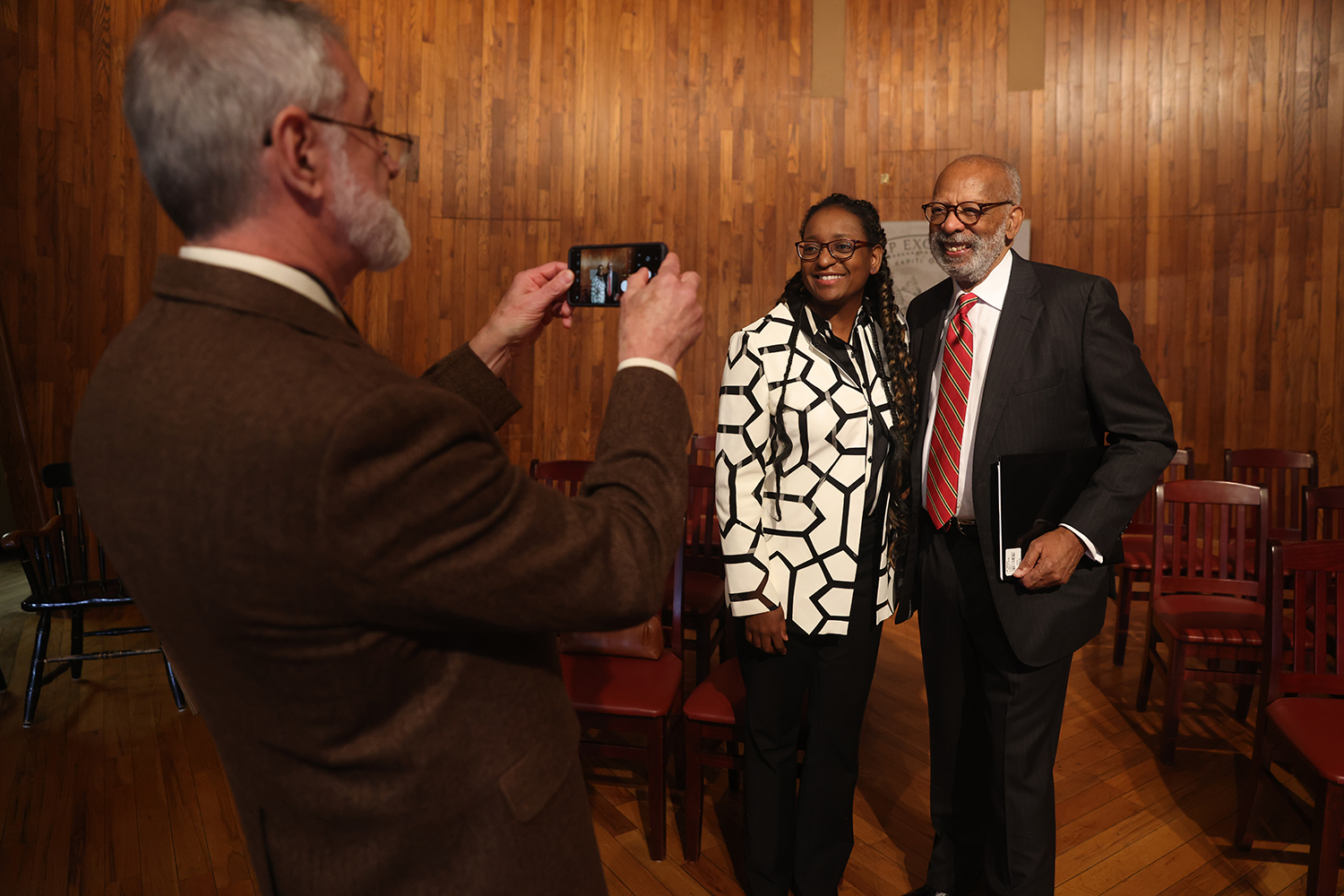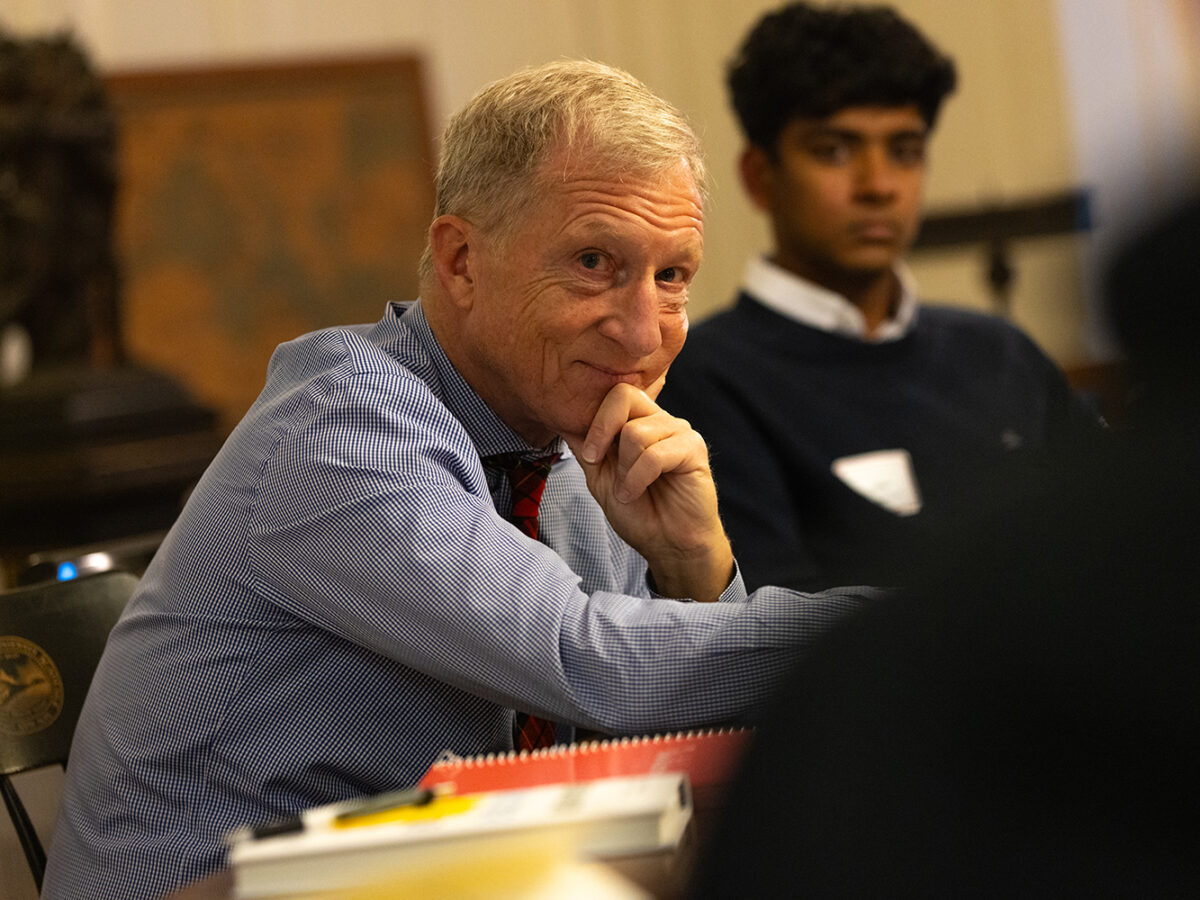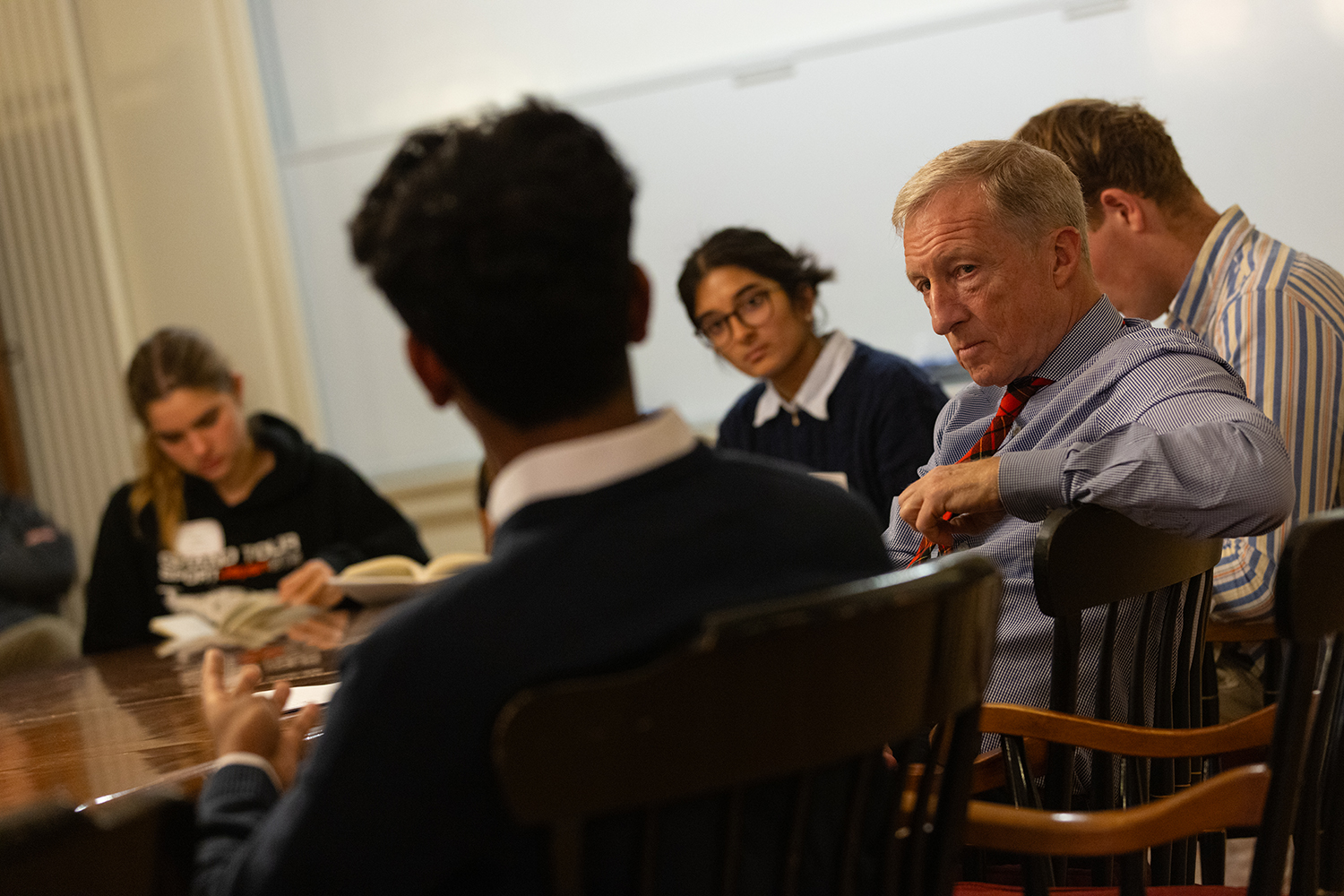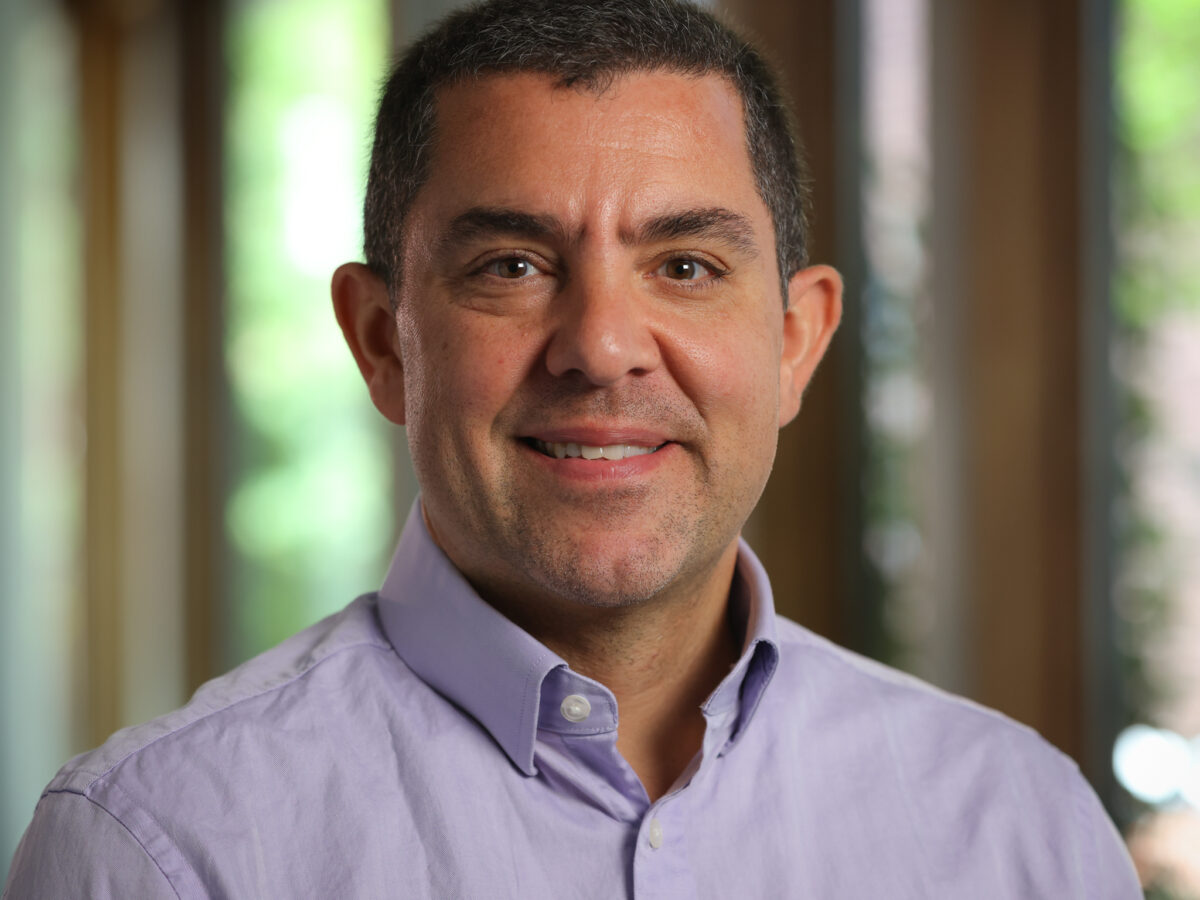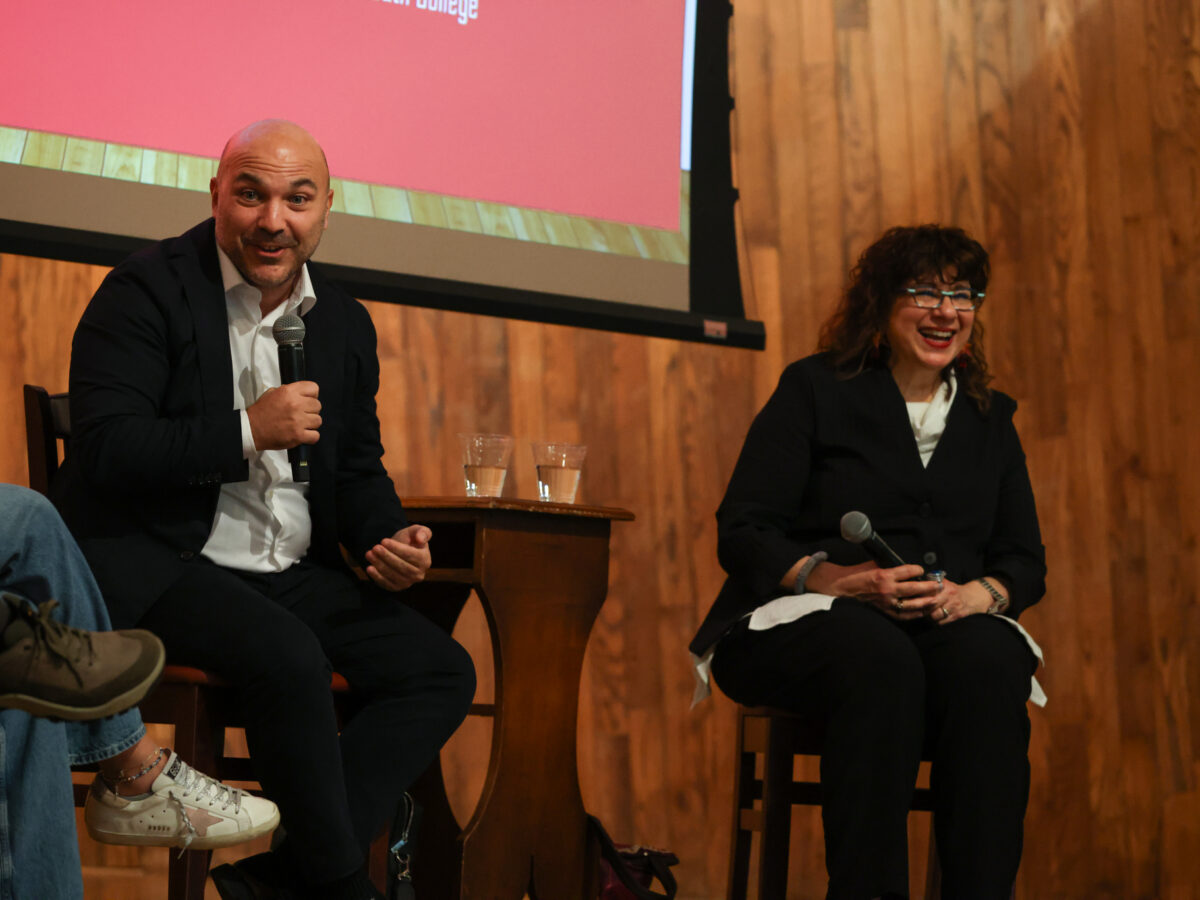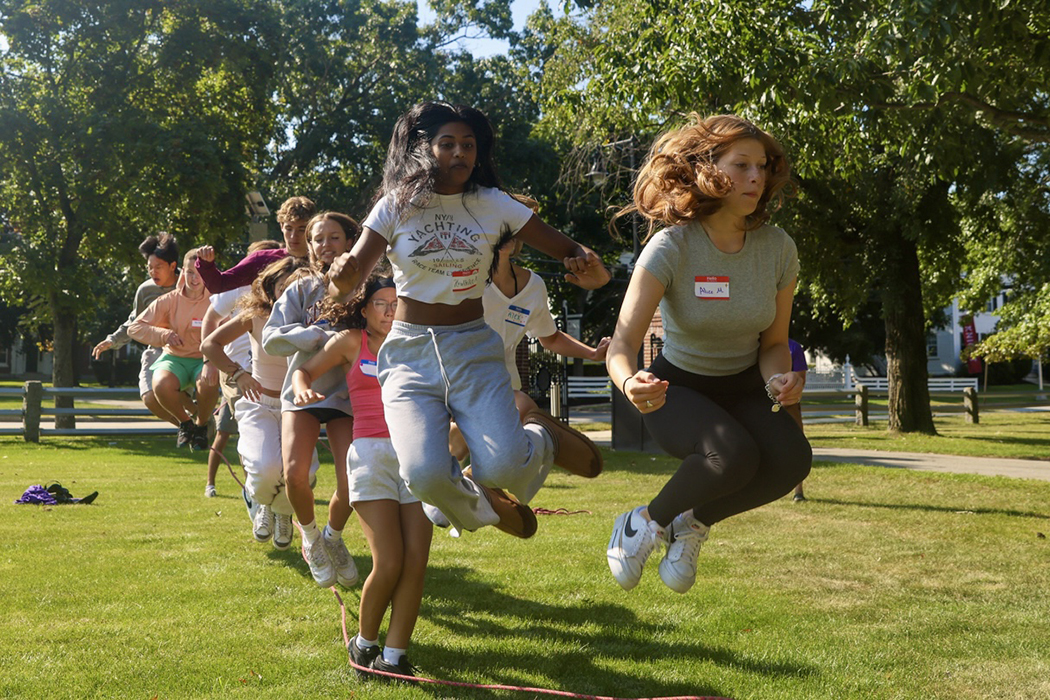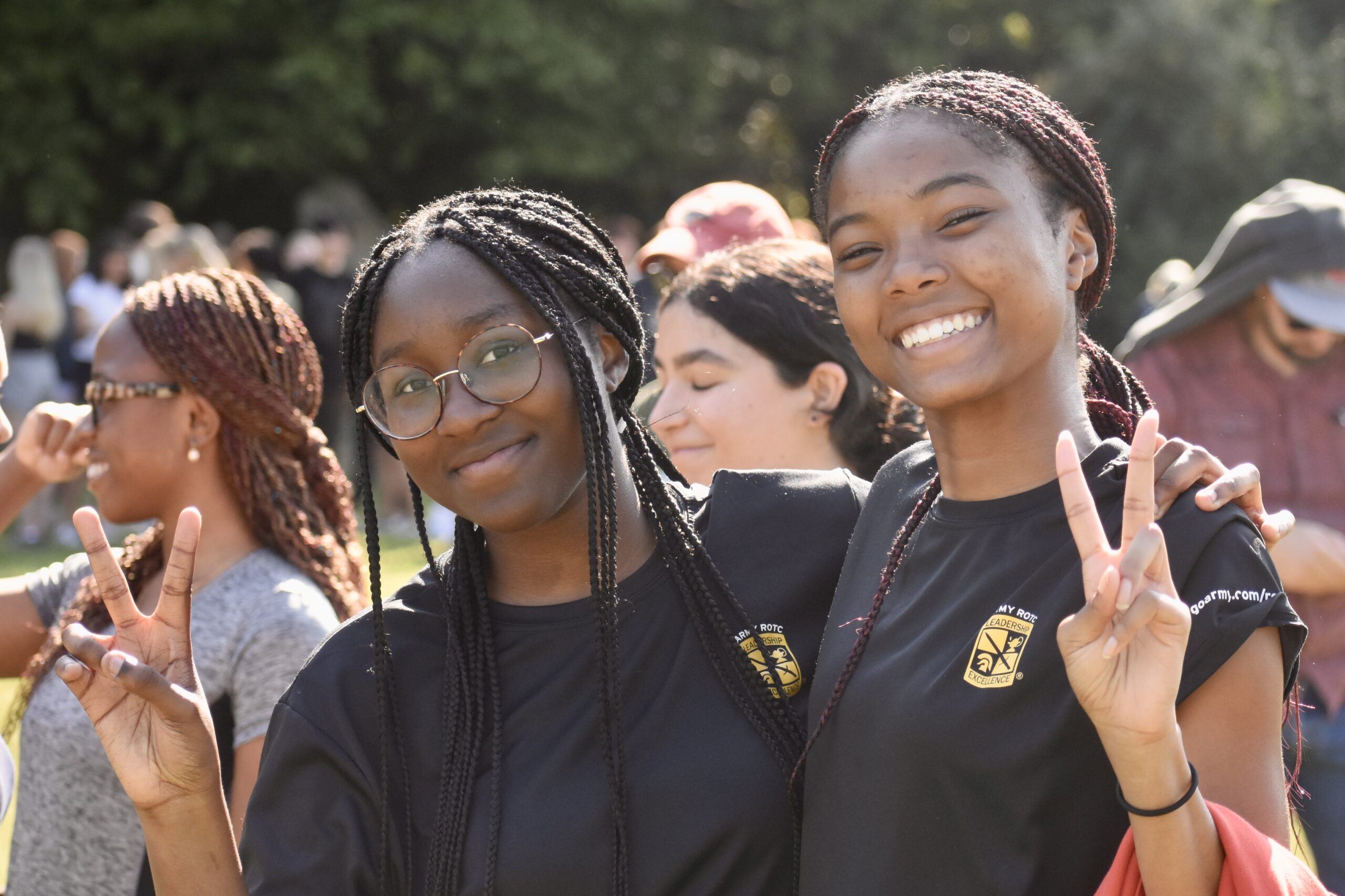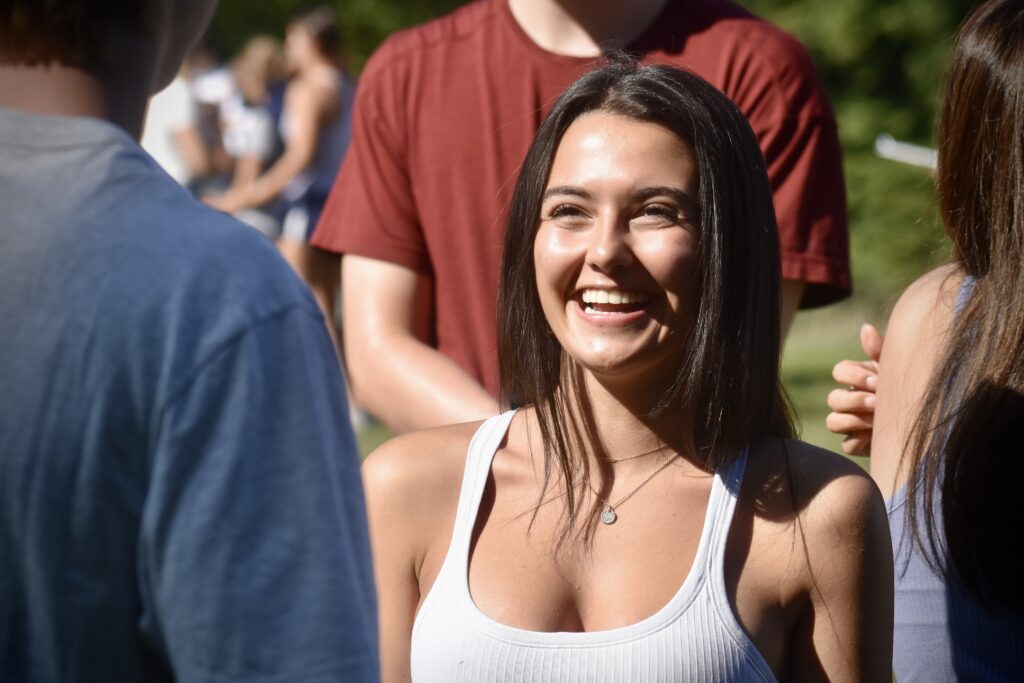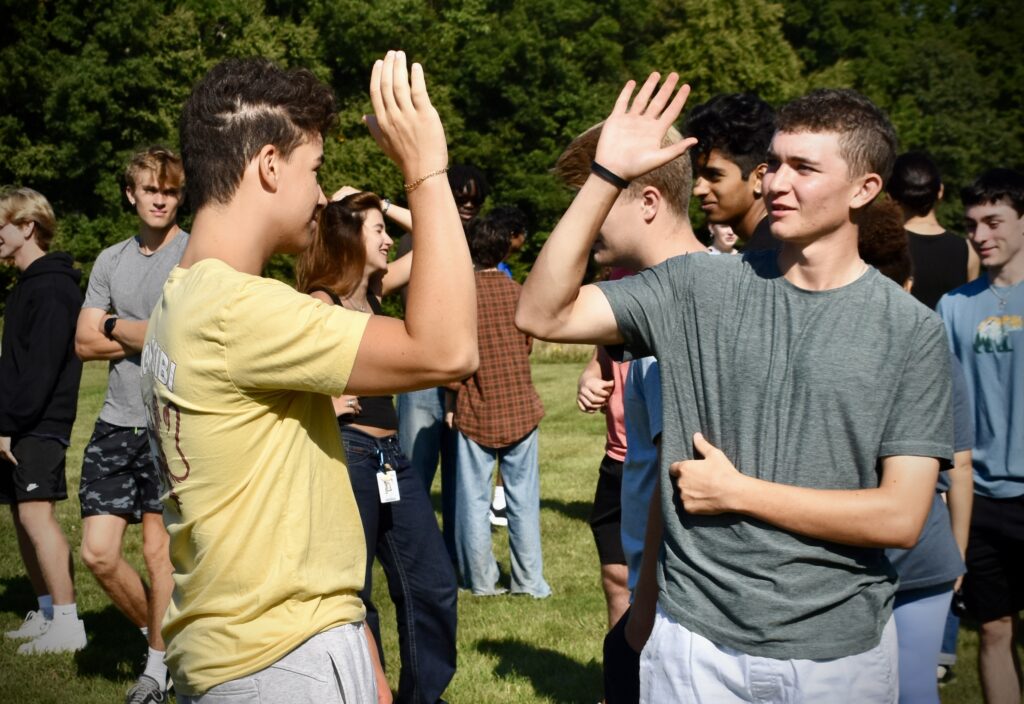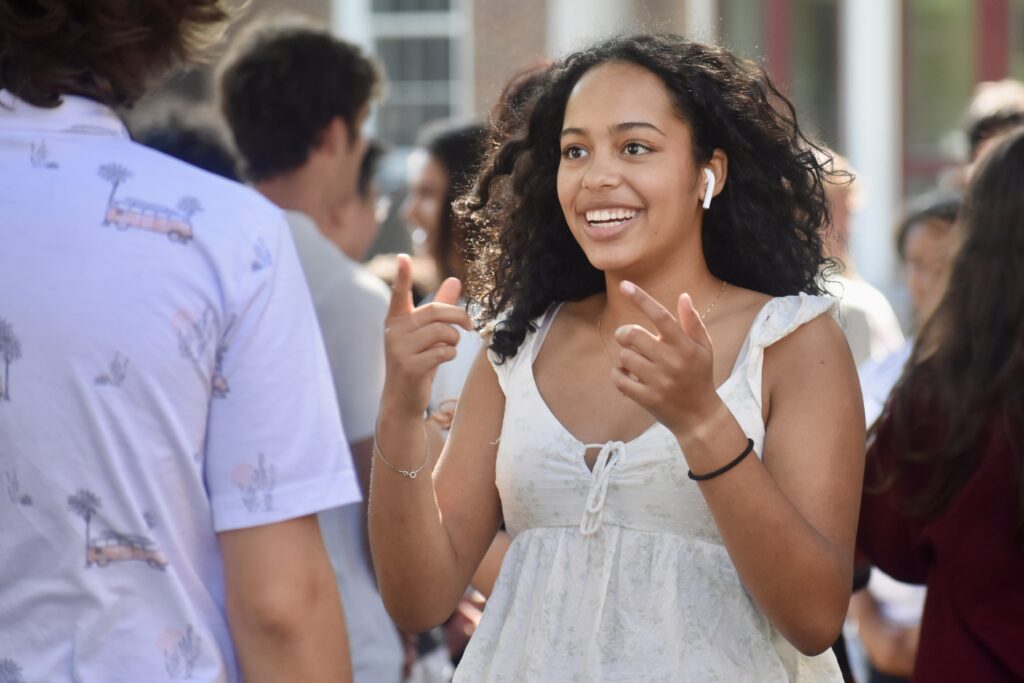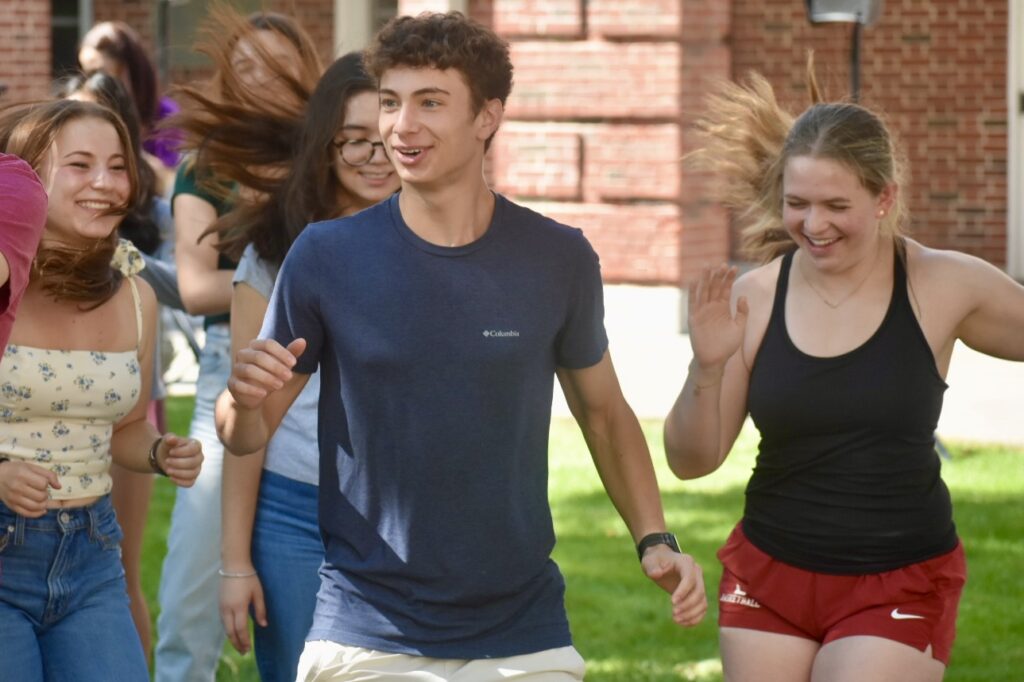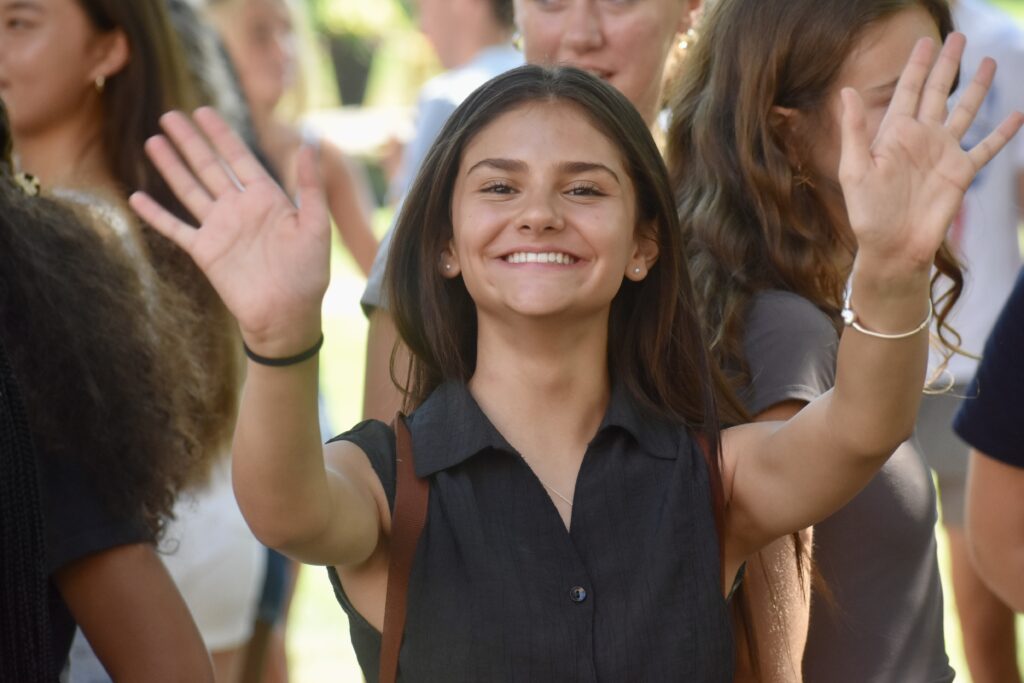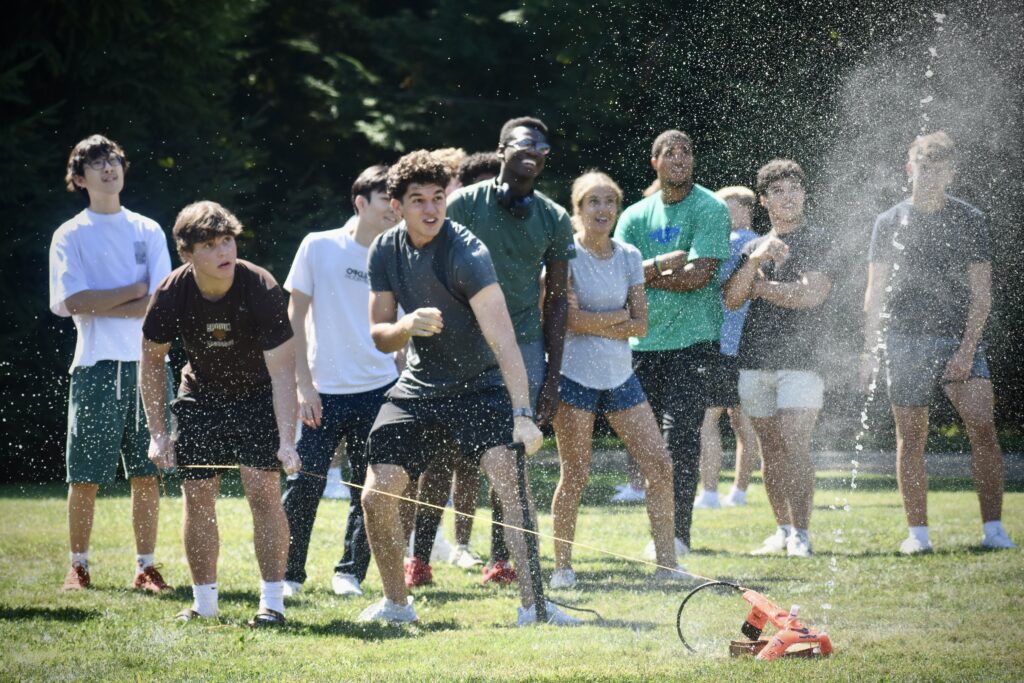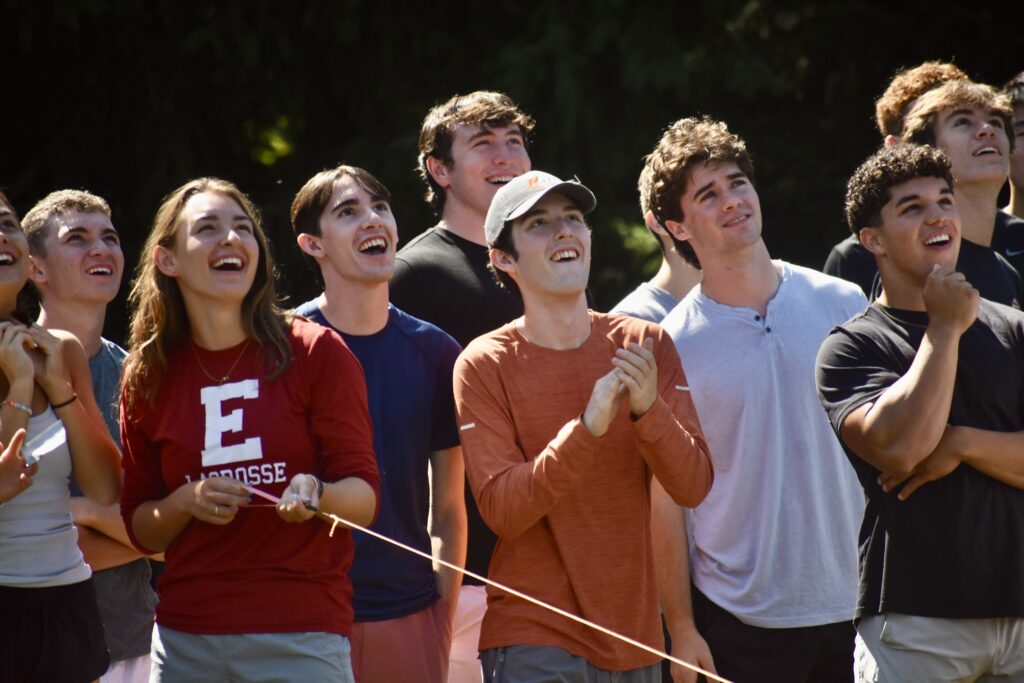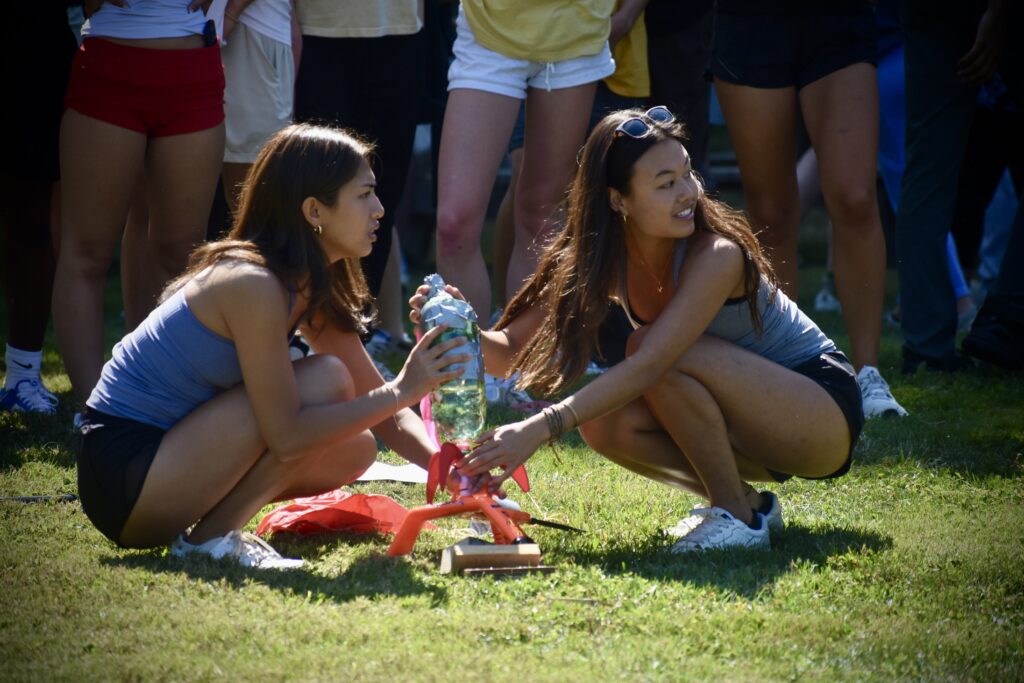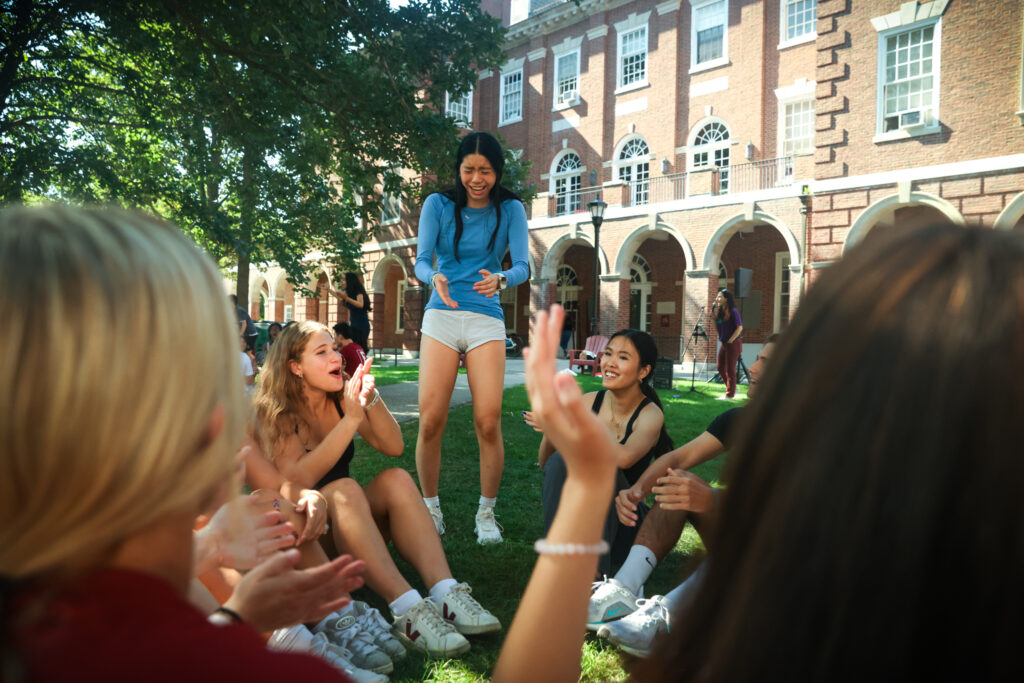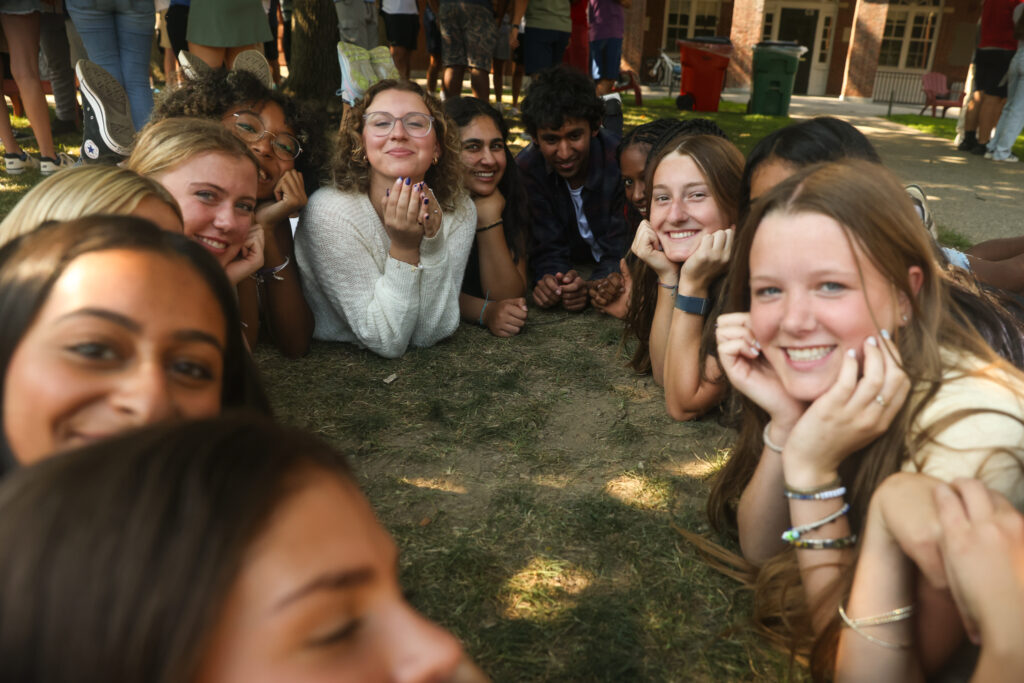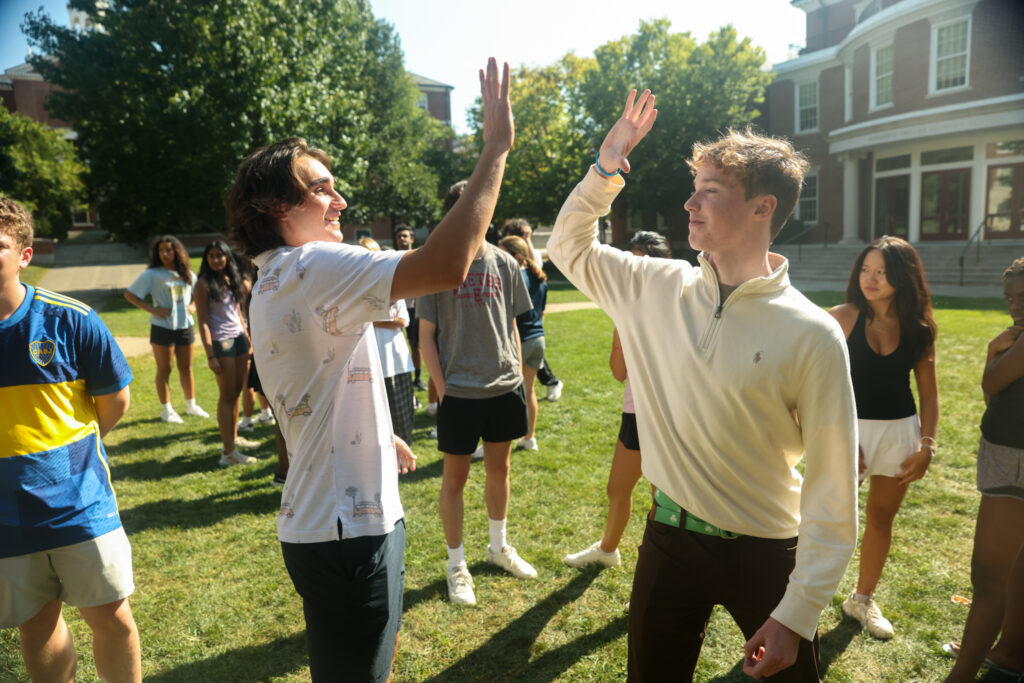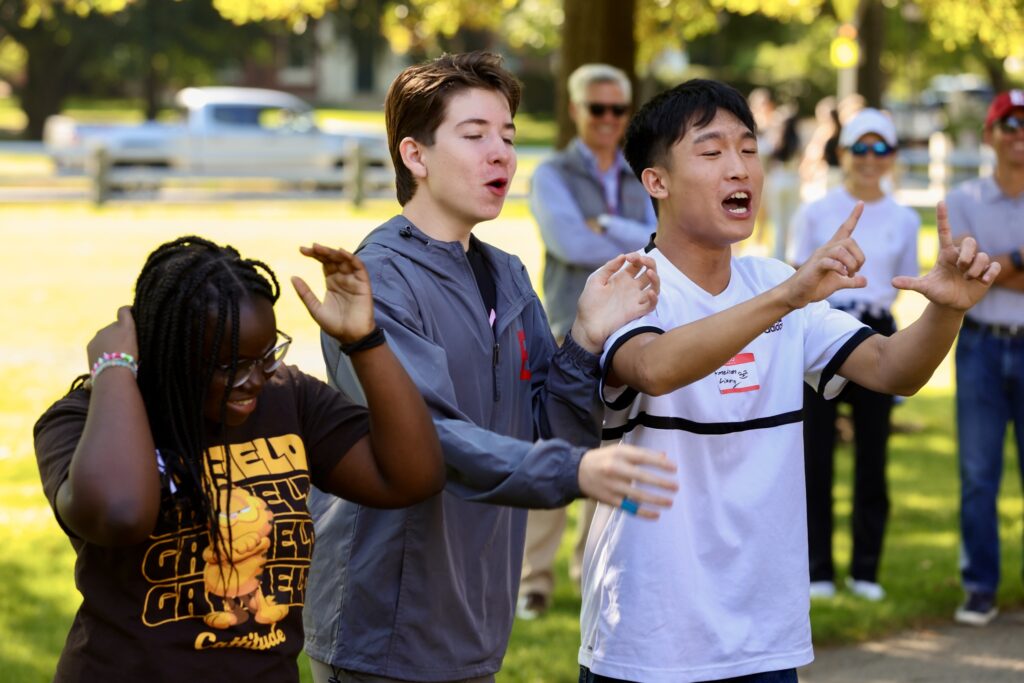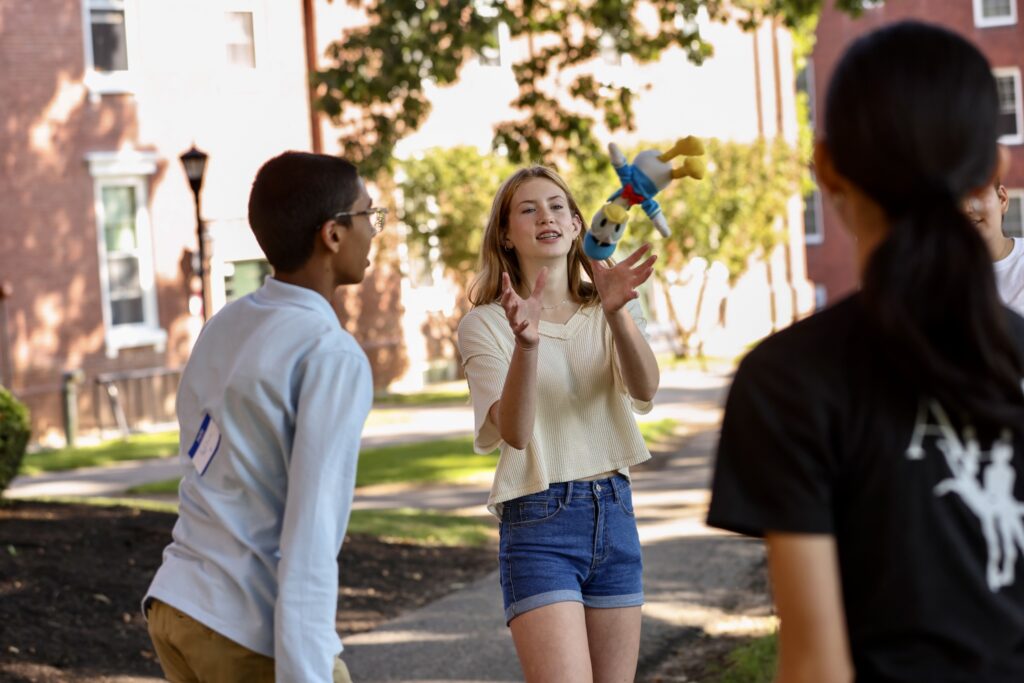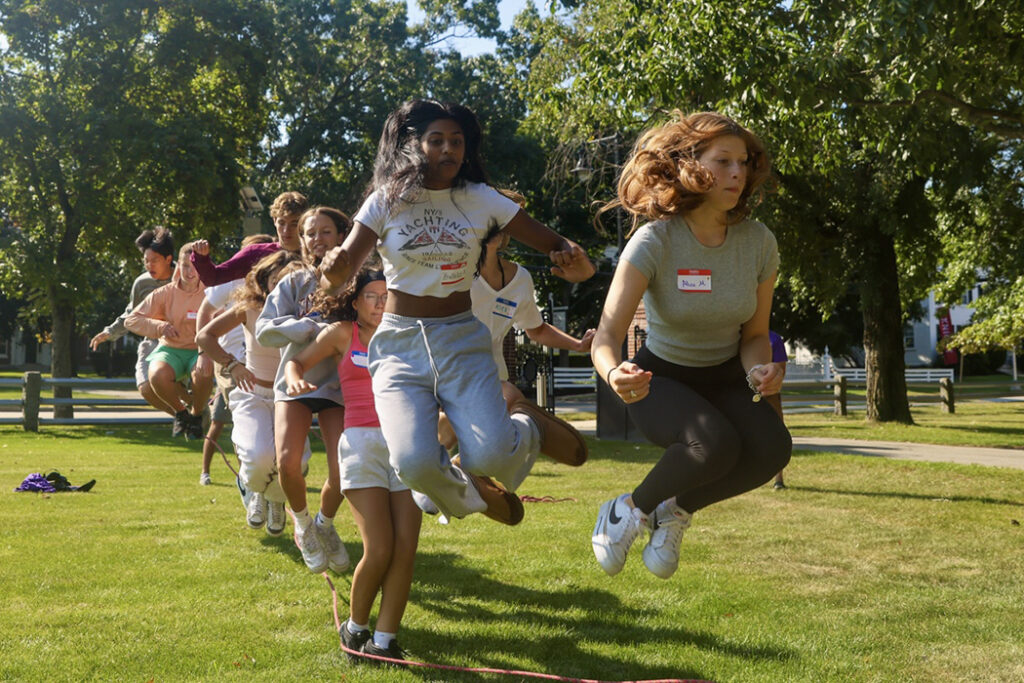Exeter Annotated:
Exeter Annotated:
Legacy and leadership
A chronicle of excellence inside the office of Exeter Director of Athletics Jason Baseden.
For a window into Director of Athletics and Physical Education Jason Baseden’s world, visit his office on the second floor of Love Gym.
Tucked alongside the Ransome Room and just steps from the pool and squash and basketball courts, it holds a curated collection of items steeped in history, both his and Exeter’s.
“I want this room to represent who I am as a person, but I also want to make it comfortable for people to come in and have conversation,” he says. “Very important conversations happen here; I meet with prospective families, current families, students, coaches, alumni.”
Beyond comfort, he wants visitors to understand the history of the department. “I want people to feel like they are in a unique space,” he says, picking up a silver cup from The American Silver Museum that was given to Exeter boxers in 1893. “I feel very fortunate to be in the role I am because high school athletics was born out of Exeter, and that history is important.”
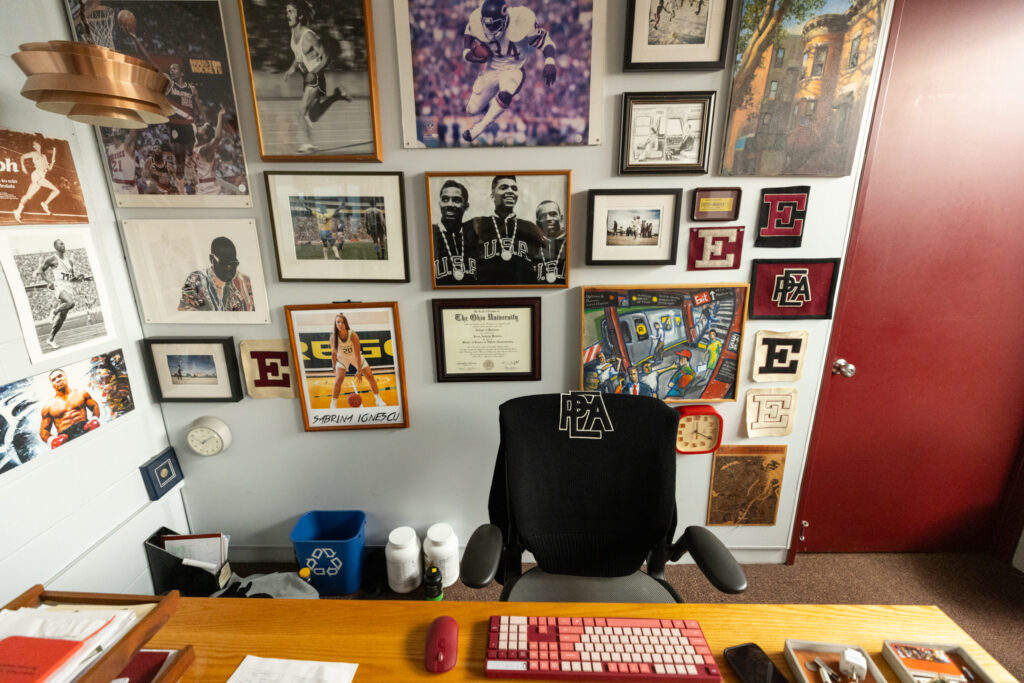
“This is my wall of people that have had a huge influence on my athletic life. Walter Payton, Clyde Drexler, Steve Prefontaine, Pelé, Sabrina Ionescu. I played football, basketball and track in high school, then I ran track in college. Payton represents hard work for me. He had this thing, anytime you get knocked down, you’ve got to get right back up. That’s something I’ve translated to sports and to life.”

“George & Phillips in downtown Exeter was the first store that supplied Exeter with athletic attire, well over 100 years ago. A lot of these old photos, sweatshirts and banners came from them. One of the things I really like is this photograph of the 1904 football team. It means a lot when I see that we had an African American student-athlete, Benjamin Selden, back then.”

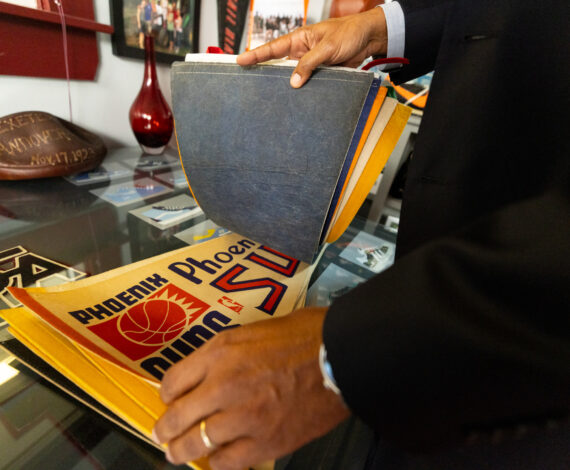
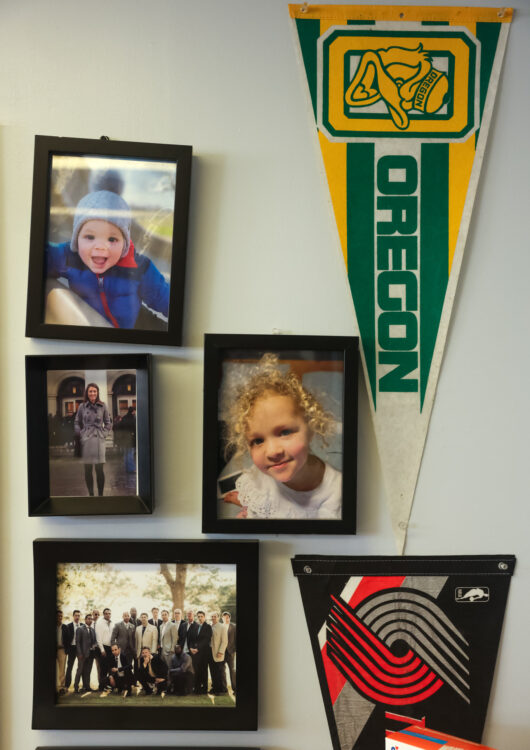
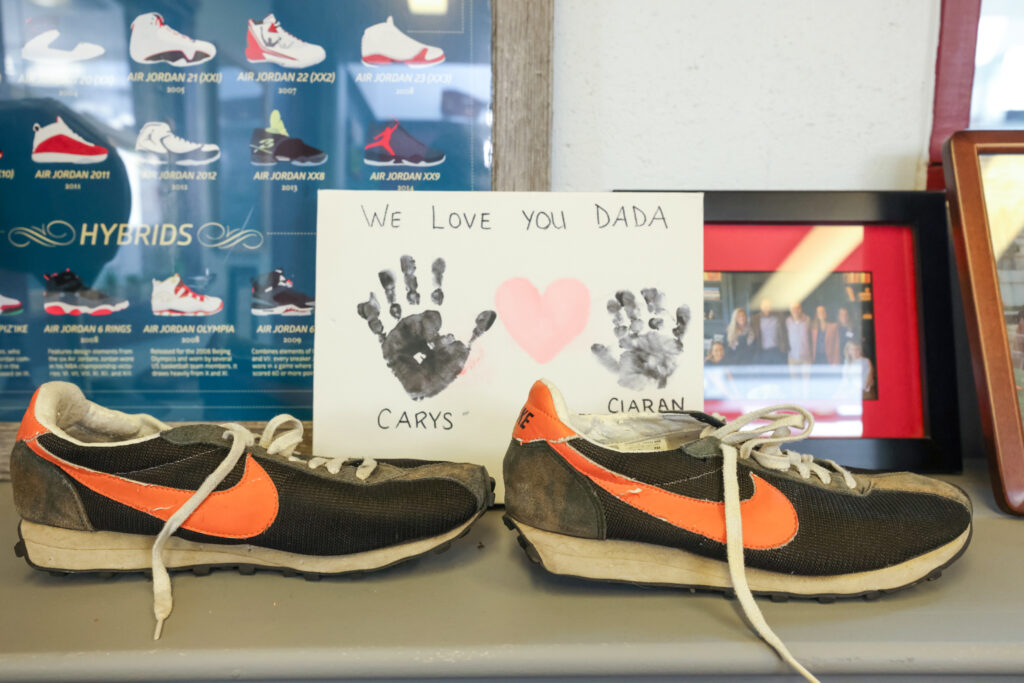
“Those are my old shoes from high school. … I grew up just outside Nike Town, in Beaverton, Oregon, and so Nike shoes and athletes played a huge part in my life. I had one of the first pairs of Air Jordans ever, before they came out, because my next-door neighbor worked at Nike under Phil Knight in 1983-84. I didn’t grow up with a lot of money, but my parents knew Nike sneakers were important to me.”
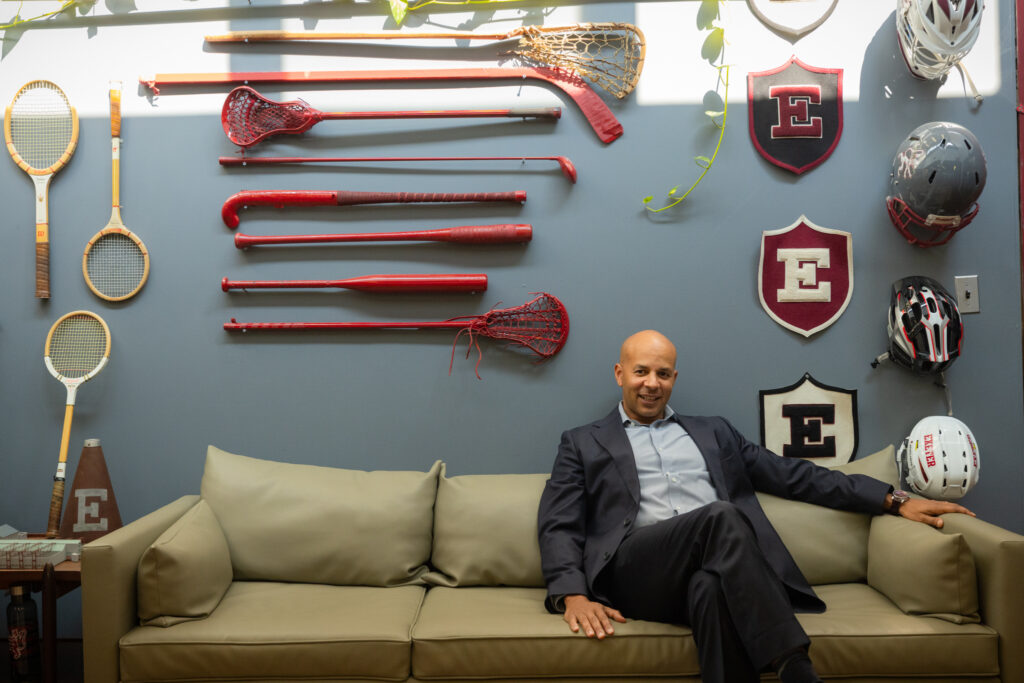
“I created this wall because I feel like these are our educational instruments — we use balls, rackets, sticks to educate. I tried to have a representation of each of our sports. Some of them were my own and a couple were given to me. The javelin was used in the 1956 Olympics.”
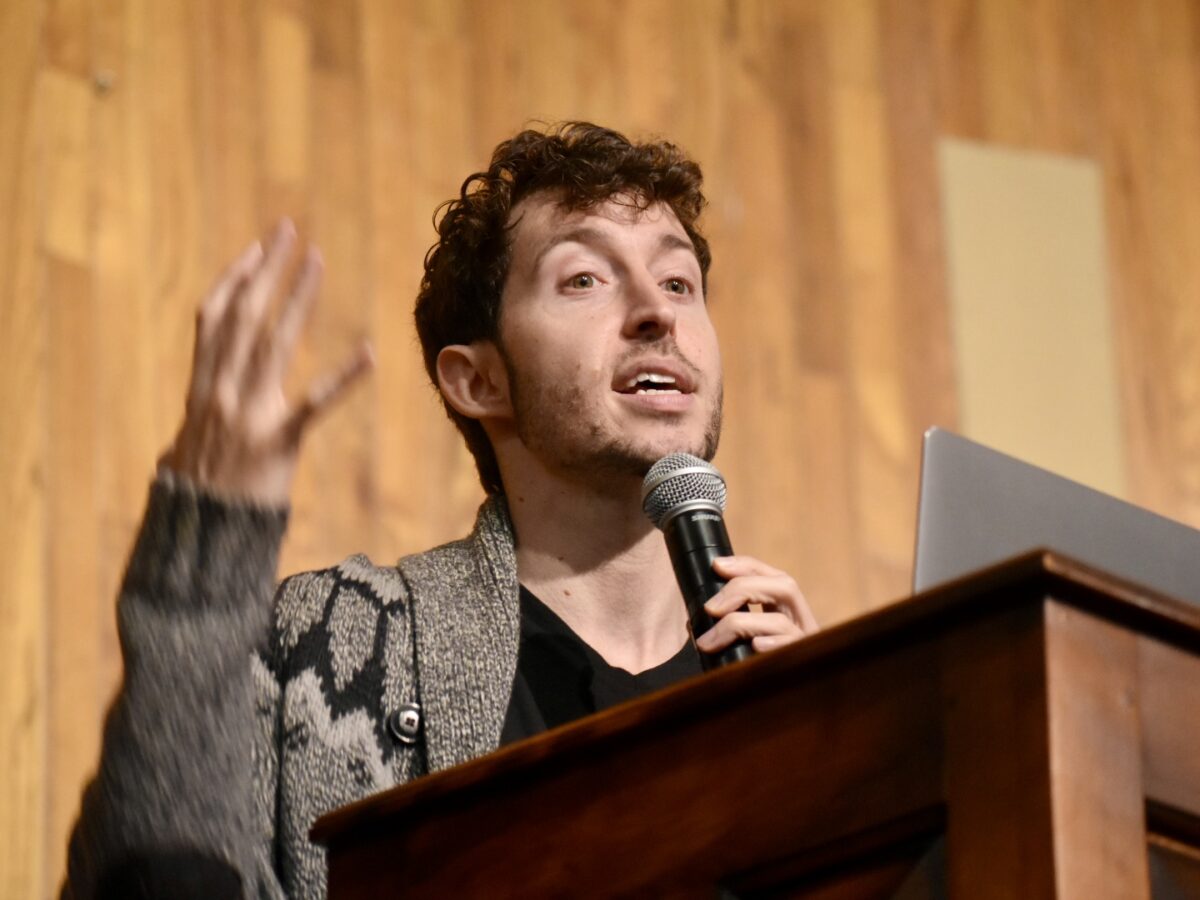
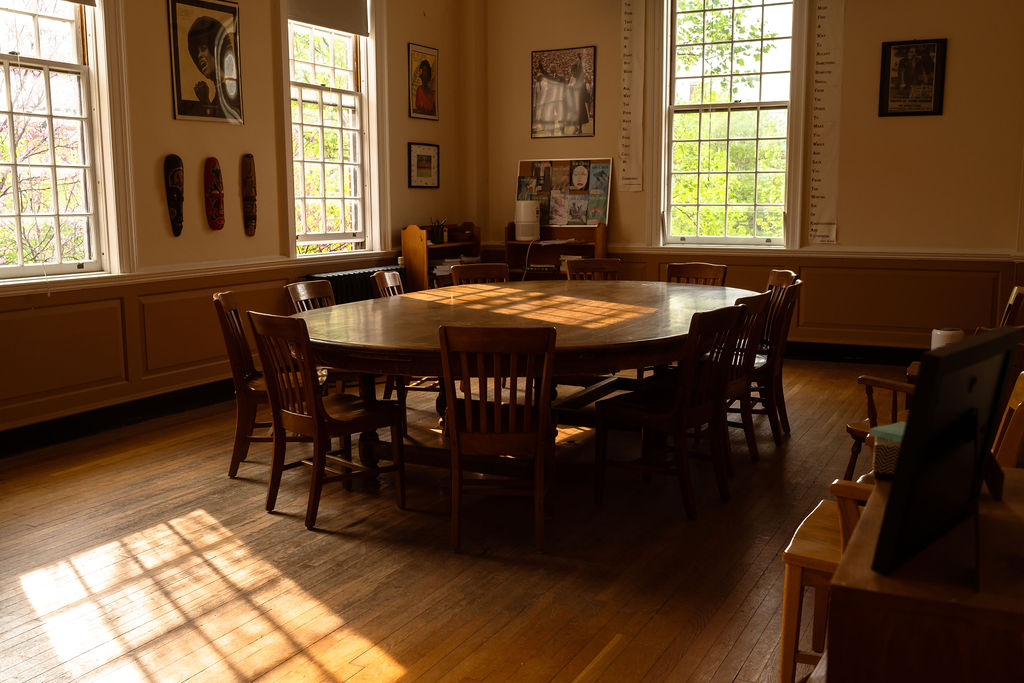
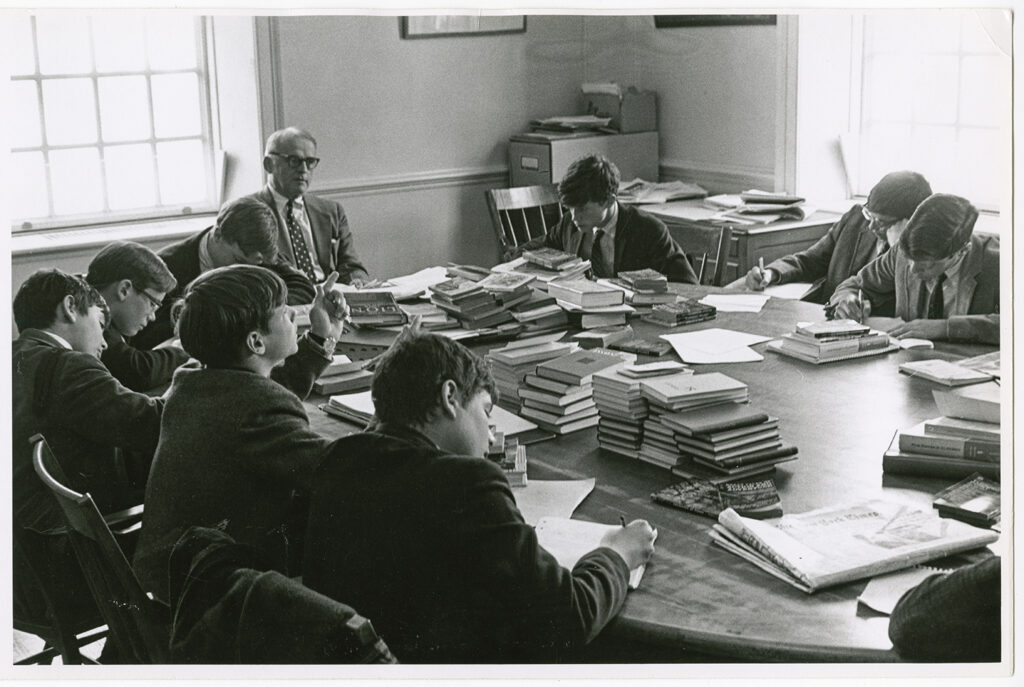



 Harkness Warrior: Takes up space (sometimes too much) in the discussion. Wields a carefully chosen citation like a sword and loves nothing more than a challenge. Intellectually ferocious but able to be tamed by a skilled instructor.
Harkness Warrior: Takes up space (sometimes too much) in the discussion. Wields a carefully chosen citation like a sword and loves nothing more than a challenge. Intellectually ferocious but able to be tamed by a skilled instructor. Harkness Wallflower: Typically hangs back and lets others take the lead. Well-honed listening skills. When coaxed (typically by instructor) to contribute, can often produce an
Harkness Wallflower: Typically hangs back and lets others take the lead. Well-honed listening skills. When coaxed (typically by instructor) to contribute, can often produce an
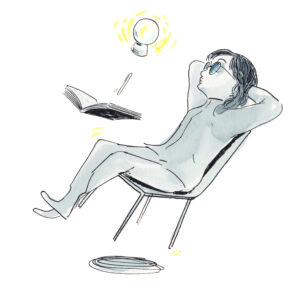 Harkness Psychic: Cites evidence invisible to normal students.
Harkness Psychic: Cites evidence invisible to normal students.
